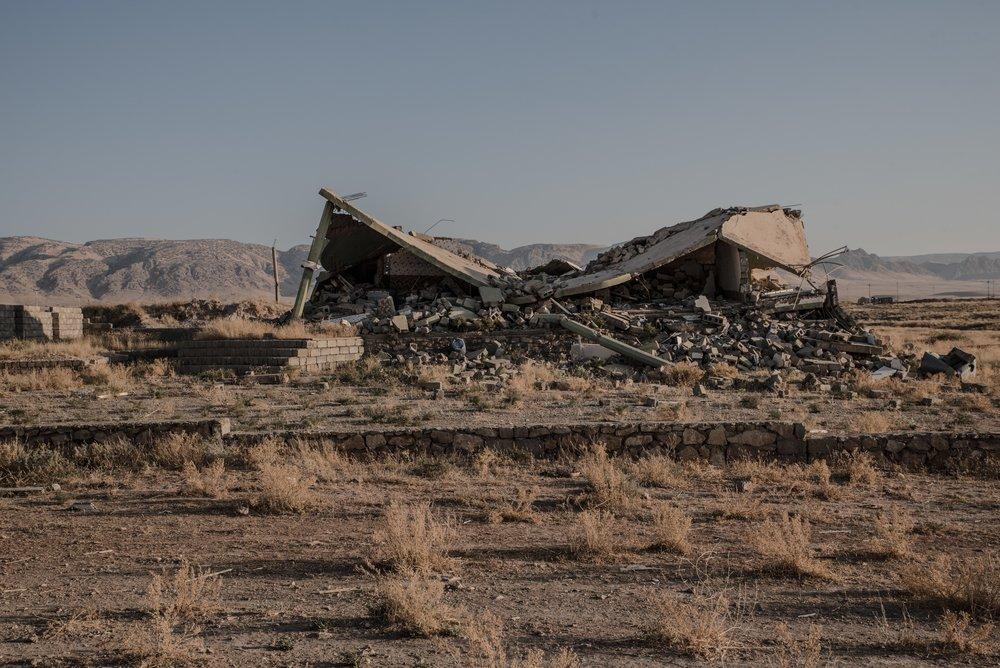Dr Kate Goulding is an emergency doctor from Australia and has been managing the emergency room and paediatric department of the Sinuni General Hospital, Sinjar District, northwestern Iraq, which Doctors Without Borders (MSF) run in partnership with the Iraqi Ministry of Health since May this year. When no psychiatrist was identified to work in Sinuni for three months, Kate took on the task of supporting local staff to care for mental health patients in need of medication, alongside a psychiatrist based in Geneva.
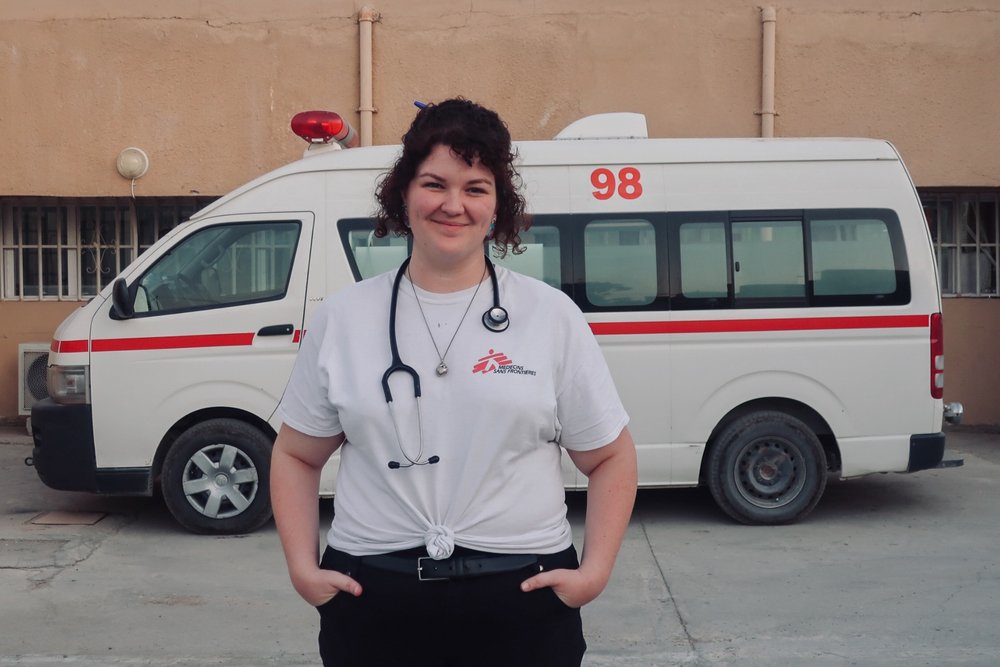
People rarely talk about what happened to them or the things they saw, on 3 August 2014 – the day that the Islamic State group took control of many towns and villages around Mount Sinjar in Iraq. Five years later, everyone here carries around with them deep-seated grief about what the Yazidis often refer to as the ‘74th genocide’.
The first mental health assessment I did in Sinuni, a town on the north side of Mout Sinjat, was for a 24-year-old man I will call Wisam. Brought to us by his brother, he showed symptoms of severe depression. During our first meeting, he told me about his stress, his headaches, his stomach pains, his loss of appetite, his difficulty sleeping and his nightmares, and he detailed the constellation of depressive symptoms that made his daily life so dreadfully difficult.
When I do an assessment like this, I screen a patient for what is called ‘thoughts, plans, means and actions’ using a line of questioning that goes something like: Have you been thinking about death or hurting yourself? What sort of things make you think about killing yourself? How would you do it? Do you have a gun? Where is it kept? Have you ever tried to hurt or kill yourself in the past?
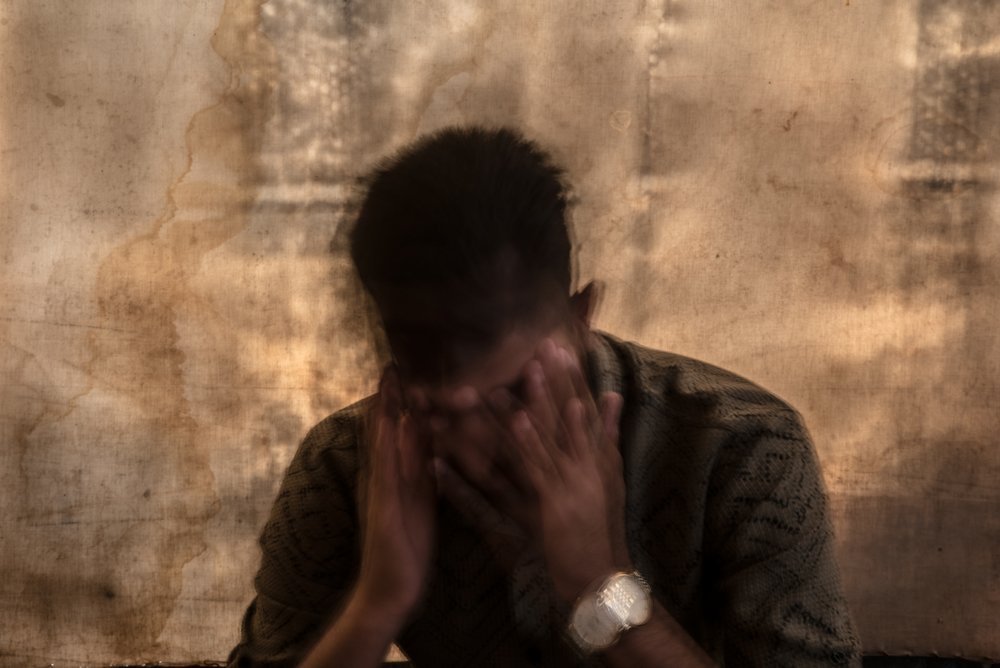
Wisam had seen people killed and been forced to kill. He was having thoughts of killing himself, and often others too. Usually, they didn’t last long, but the thoughts were becoming more frequent and were associated with angry outbursts. Recently he had pulled out a knife during a family argument. This would be alarming coming from any patient, anywhere in the world, but the part of Wisam’s story that disturbed my sleep for days was that he was a soldier and had access to guns every day at work – guns he imagined using to kill himself and others.
Mental health patients can be divided into three categories: those who can clearly go home and have their mental health managed as outpatients in the community; those who clearly need to stay in hospital to avoid harm to themselves and others; and those in the uncomfortable grey area in between. Wisam was grey. He needed to be started on antidepressants, but these can sometimes make the symptoms of depression worse and heighten the risk of suicide in the first days and weeks before they start helping the patient improve. So he needed to be very closely watched.
Usually, in the hospitals where I have worked before, a patient like Wisam, so clearly in the grey, would be handled by a team of psychiatric experts. If the situation was serious enough, he might even be kept in hospital against his will in order to keep him safe. In Iraq, however, there are no legal grounds for medical staff to keep a severely ill patient in hospital against their will in an attempt to protect them from harm. With no psychiatrists in the district, the uncomfortable decision about what to do rested with me.
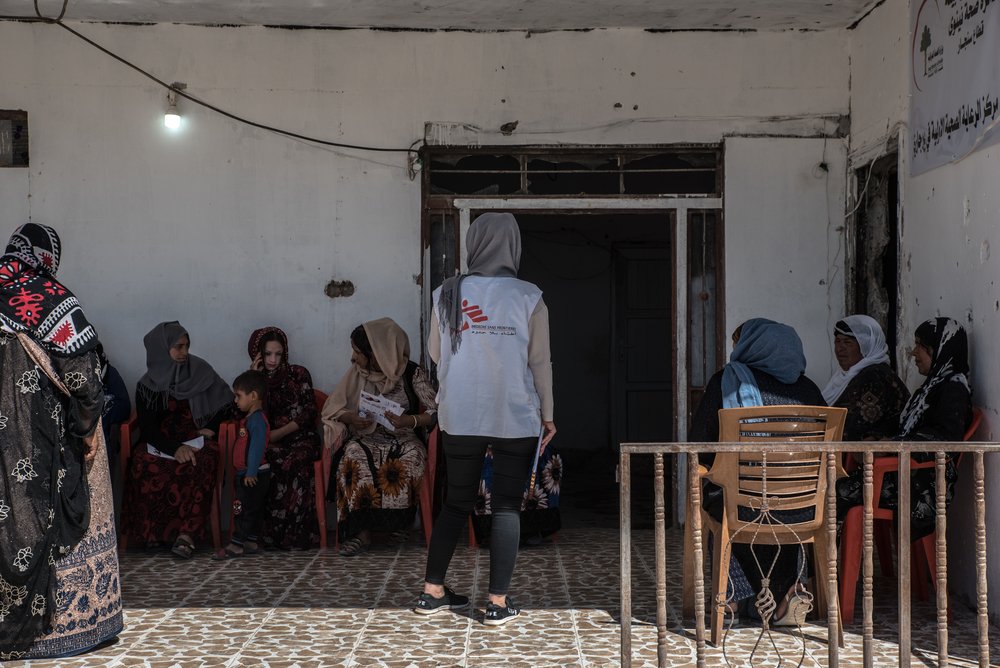
I asked Wisam if he would agree to be admitted to the emergency room for a couple of days while he started his medication. He refused. The best I could do was to start him on medication that would hopefully make him feel better, whilst asking his employers to let him take a week off work. My letter to his employers read like a note from a parent to a schoolteacher, begging to keep Wisam and his angry, impulsive thoughts away from all the guns in Sinjar area.
Unfortunately, Wisam’s story is not uncommon; there are many of my politely worded schoolteacher letters floating around Sinjar – in many cases, to keep suicidal people away from weapons.
When we talk about the things that cause people to stress, very few will speak about the genocide. In fact, it is very difficult to get anyone to talk about it at all. However, a common theme in mental health consultations is the friends and family a patient has lost.
Universally, the sudden loss or disappearance of a loved one is a clear trigger for mental health struggles, with or without the associated trauma of conflict. What struck me in Sinuni was that, even with all the ugliness that these people have experienced, in many ways they struggle with the same problems as any of us. It is universal to be sad when your husband dies, when your child is sick, when you break up with your partner, when you are separated from your family. Often these are the events that trigger exacerbations in their mental illnesses and bring them to us.
The few things I have heard about the genocide have come from the staff I work with. Stories of panic when Islamic State militants came to their doors at night and took their money, phones and other belongings; the relief they felt as they managed to escape with their mothers and sisters; the drive out of town with so many people crushed into the car that the doors wouldn’t close; how they felt in the following days as they hid in the valleys of the Sinjar Mountains, planning their escape to Kurdistan.
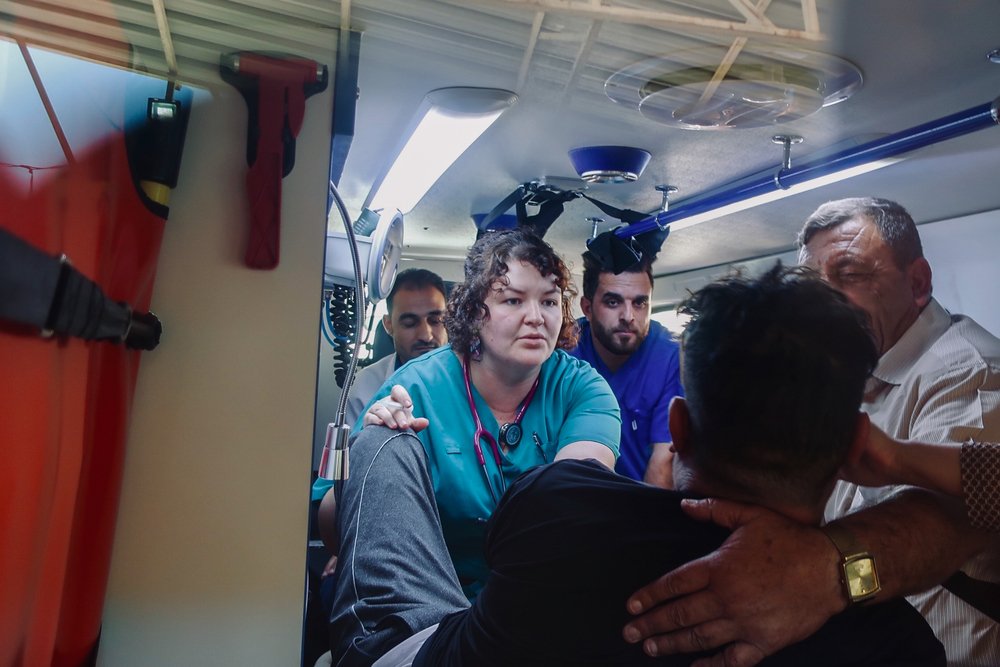
This community – especially the doctors, nurses and other MSF staff I work with here in Sinuni – has been the warmest and most welcoming group of people I have ever had the pleasure of knowing. Most days, happiness and hope radiate from their faces. And yet, occasionally, clouds pass over their faces from the storms in their minds, as they grapple with the reality of their past and present circumstances.
My colleagues return to their families in Kurdistan whenever they are not working. Most of their families live in camps, for now, and for the foreseeable future, and have no plans to return to Sinjar. As the main breadwinners for their large families, my colleagues are under huge financial pressure.
They speak often of the sadness of being separated from family members who fled to Germany, and of the friends and relatives whom they suspect they will never see again. They talk about balancing their families’ desires to stay in Iraq against their own dreams of escaping the instability they predict for the future here. They speak of the complexities of their religion and culture, and of their professional responsibility to care for their community and those who were previously a threat to them. They wonder whether things in Sinjar will ever return to how they were before and whether people will ever come back.
